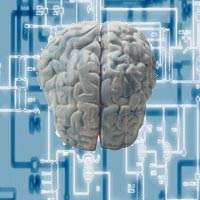I recently had one of those "ah-ha!" moments, so I posed this question to Reason over at Fight Aging!
The question is basic, but could be approached from different directions. I'm new to the anti-aging forums, so maybe this has been discussed, but I haven't come across these objections yet.
My question has to do with the moral dilemma of embryonic stem cell research. There are those who are opposed to all forms of stem cell research, but they are a small minority, and in my opinion, they can be ignored. But those who are opposed to embryonic stem cells in particular pose the following substantial moral dilemmas: 1) you are destroying a living human organism (i.e., murder), and 2) you are using the embryo as a biological tool, degrading it as though it were something non-human
So I have a few thoughts on how this could be avoided. I'm not a biologist, so I'm asking for a biologist experienced in the field if the following possibilities make sense.
First of all, from what I've read about embryonic stem cell research, it involves growing an embryo for a few weeks, until it is a clump of a hundred to two hundred undifferentiated cells. My question is, if the cells are undifferentiated, then would the embryo really miss one? At this early stage, would it be possible to remove a single stem cell (or two, or ten) without killing the embryo? If so, we could implant the embryo, and defeat at least the first of the two major dilemmas. I know harvesting a single stem cell isn't very much, but as I understand it, they can be reproduced readily, so it's really the number of stem cell lines, not the quantity, that's holding up research, right?
I have my doubts if this is possible, but I'd like to know for sure. Of course, this wouldn't help with cloned embryos, as that has its own set of societal taboos. (Note that I don't say moral dilemmas in this case, as I consider most of the moral objections to cloning to be due to a lack of education.)
So my second question is this. Why must the embryo be destroyed anyway? Even if removing stem cells from the embryo is fatal, why must we destroy it? Couldn't we freeze the embryo, and then repair it with thechnology available 10, 20, or 50 years from now, prior to implantation into a womb? I know that this argument doesn't hold weight with the opponents of cryonics, but that is because no human being has been successfully frozen to liquid nitrogen temperatues and then resuscitated. However, to the best of my knowledge, embryos are routinely frozen, then thawed, implanted, and carried to full term. So couldn't we in theory freeze what is essentially a "wounded" embryo, and then heal its injuries with the technology available to us in the future?
My third question is sort of a combination of the two previous questions. If removing stem cells, even just one or two, is fatal, then what about this: Remove the stem cells and freeze the embryo. Multiply the stems cells to a larger quantity (maybe two or three divisions), then thaw the embryo and replace the stem cells.
So, any thoughts?
Jay Fox

















































